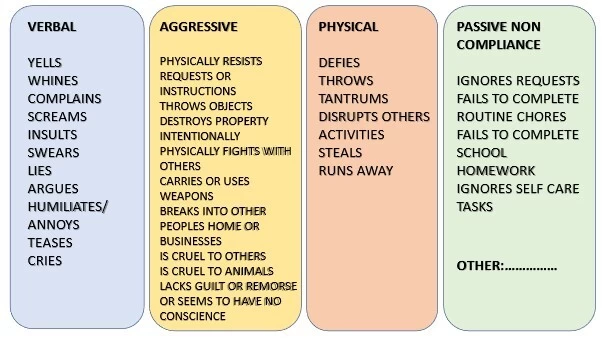YOU CAN’T CHANGE YOUR DEFIANT TEENAGER…
…but you can change how you parent!
Stand firm against defiance – Keep to your limit and be strong. Don’t let fear, fatigue or guilt stop you. When you stand firm you are providing on the outside what your teen cannot provide on the inside
Stay connected – Take initiatives to keep talking with your teen. This doesn’t mean you should subject yourself to abuse or injury
Give as much freedom as your teen earns – Resist the temptation to remove all privileges and freedoms until he admits you are the boss. Instead let your teen have whatever he earns, e.g. ground him or take away his media but not both
Expect escalation – If you have set limits, expect things to initially get worse rather than better.
Encourage adaption and mourning – Mad transforms into sad, which then creates a functioning adult
The bottom line?
– You can’t change your teen’s temperament — or even your own. If your teen is hyperactive, she’ll likely remain so for the rest of her life;
– if you’ve always been strong-willed, you’re not suddenly going to become the paragon of chill parenting.
– Environment — is slightly more changeable, but it often requires money or resources that families simply can’t access.
What is under your control, however — and highly malleable — are your parenting practices. If you change your parenting practices so that you’re engaging with your teen in a more positive, affirming way, you will get back a more positive response — including, in the long run, a less disrespectful teenager, and less defiant behavior.
THE FOUR TYPES OF DEFIANCE

